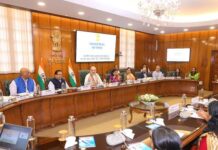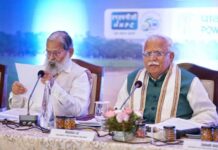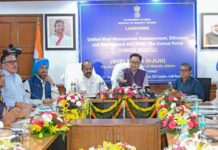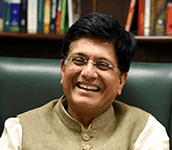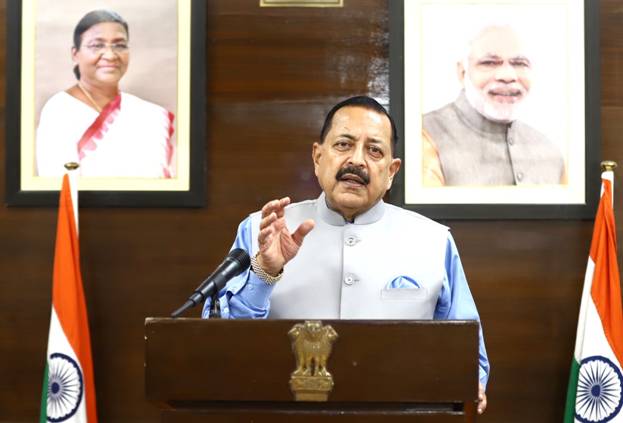JUNE 05: On the occasion of World Environment Day 2025, Union Minister Dr. Jitendra Singh reaffirmed India’s strong commitment to environmental protection and sustainable development. Addressing the TATWA event—Transforming Emissions, Air, Temperature, Water through Climate Actions—organized by the Department of Science and Technology (DST), the Minister outlined a science-driven vision for a greener, more resilient India.
Speaking as the chief guest, Dr. Singh emphasized the moral responsibility to preserve the environment for future generations. “We owe it to the next generation to preserve the environment for them,” he said, while urging both institutions and individuals to adopt sustainable practices. Highlighting Prime Minister Narendra Modi’s climate vision, Dr. Singh reiterated India’s commitments under the ‘Panchamrit’ agenda, including net-zero emissions by 2070 and a 50% renewable energy share by 2030.
He spotlighted two national missions under DST—The National Mission for Sustaining the Himalayan Ecosystem (NMSHE) and The National Mission on Strategic Knowledge for Climate Change (NMSKCC)—as central to India’s environmental research and climate resilience goals. He also announced significant investments in infrastructure, including India’s second Ice-Core Research Facility in Kashmir and expanded high-end computing capabilities across academic institutions.
Youth innovation received a special mention, with Dr. Singh highlighting IIT Mandi’s Himalayan Startup Trek and other DST-supported initiatives aimed at encouraging climate-focused entrepreneurship.
DST also launched several new initiatives:
-
Clean Coal Technology Compendium documenting 34 breakthrough technologies.
-
Technology Needs Assessment (TNA) for decarbonization across sectors.
-
Projects focused on recycling end-of-life solar panels, urban climate research, and green hydrogen collaboration with the Netherlands and Denmark.
-
The GRiH-COOL R&D Call for sustainable cooling technologies in buildings.
India’s commitment to circular bioeconomy was underscored through the BioE3 Policy, aimed at integrating biotechnology with sustainability and employment.
Speaking to an audience of scientists, entrepreneurs, and students, Dr. Singh hailed the role of international partnerships and DST’s leadership under Prof. Abhay Karandikar and Dr. Anita Gupta. He concluded by stating that “science, sustainability, and youth will drive the change” as India accelerates toward its climate goals and a green economy.






